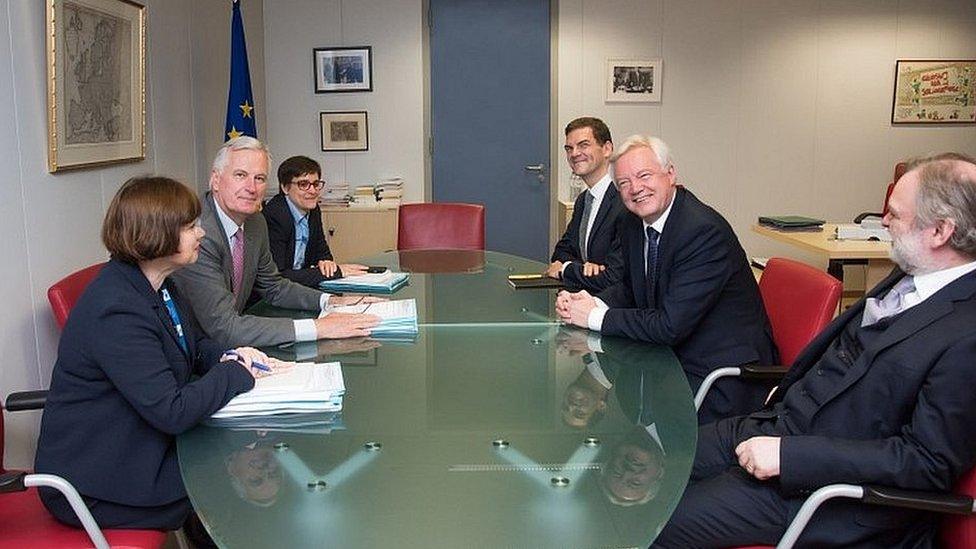Brexit: UK and EU at odds over 'exit bill'
- Published
- comments
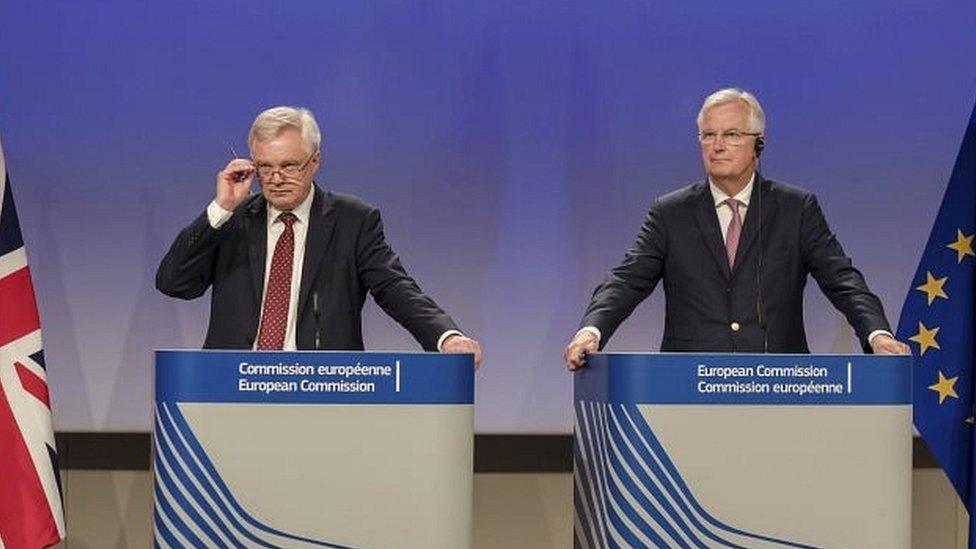
David Davis, left, and Michel Barnier
The UK and EU are still at odds over citizens' rights and the amount the UK will pay to leave the bloc, at the end of the second week of Brexit talks.
EU negotiator Michel Barnier said the UK had not been clear enough about where it stands on these issues and that was hampering progress.
UK Brexit Secretary David Davis said the negotiations on the so-called divorce bill had been "robust".
He said progress had been made but both sides needed to show "flexibility".
Mr Barnier said: "We require this clarification on the financial settlement, on citizens' rights, on Ireland - with the two key points of the common travel area and the Good Friday Agreement - and the other separation issues where this week's experience has quite simply shown we make better progress where our respective positions are clear."
Mr Davis said: "We have had robust but constructive talks this week. Clearly there's a lot left to talk about and further work before we can resolve this. Ultimately, getting to a solution will require flexibility from both sides."
Citizens' rights
The EU Brexit negotiator calls for legal certainty' over citizens' rights
Michel Barnier said there had been some areas of agreement about how Britons living abroad and EU nationals living in the UK should be treated after Brexit. A jointly agreed "technical note" outlining the UK and EU's positions on citizens' rights, external has been published.
But there was disagreement over "the rights of future family members" - meaning children born in the future to EU citizens in the UK - and "the exports of certain social benefits".
The EU wants rights currently enjoyed by EU citizens in the UK - access to healthcare, welfare, education - to apply to children and family members, whether they currently live in the UK or not, and to continue in perpetuity, after the death or divorce of the rights-holder.
But it says children born to UK citizens in EU states after the withdrawal date would be considered "family members", not rights holders themselves - the UK says it would allow children born to EU citizens to acquire the same "settled status" or, in some cases, British citizenship.
The UK wants to give all EU nationals living in the UK the same rights as British citizens once they have been resident in the country for five years, as long as they arrived before a specified "cut-off" date, probably 29 March 2017, when Article 50 was triggered. After this date, they could continue to build up their five years' entitlement if necessary.
The EU's position also requires that citizens live in a host country for five years before acquiring permanent residency rights.
In addition, EU nationals who get married after March 2019 would lose the right to bring family members to the UK, unless they pass an income test, like non-EU migrants.
They could also risk losing their right to return to Britain if they leave for more than two years - as would be the case for British citizens in EU countries. The UK says it is prepared to offer some flexibility on this for some citizens on overseas postings or studying abroad and wants the EU to offer the same.
David Davis said the UK had published its approach to citizens' rights, external since the first round of negotiations, which he described as "both a fair and serious offer" and had now published a joint paper setting out areas of agreement, and issues for further talks.
He said sticking points in the talks included the rights of employees of EU-based companies to work for extended periods in other countries, such as the UK. British officials highlighted that British expats would lose the rights to vote and stand in local elections under the EU plan - while the UK position is to protect the rights of citizens to vote and stand in elections in their host country.
Brits moving from one EU country to another
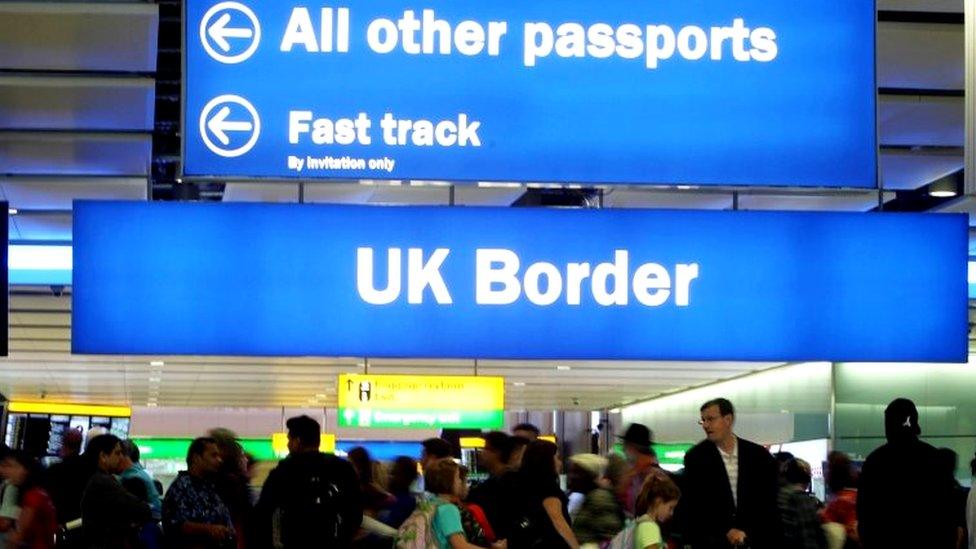
EU negotiators have said that British people living in an EU country would lose their guaranteed rights if they moved to another EU country.
A senior EU source said there was a willingness to be flexible on this point during the negotiations, depending on the UK's position in the next set of talks.
Senior British sources called the proposal "unprecedented" as it would leave British expats with worse rights than those coming from outside the EU and it would be "interesting" to see what the public reaction would be to it.
Analysis - By Kevin Connolly, BBC news, Brussels
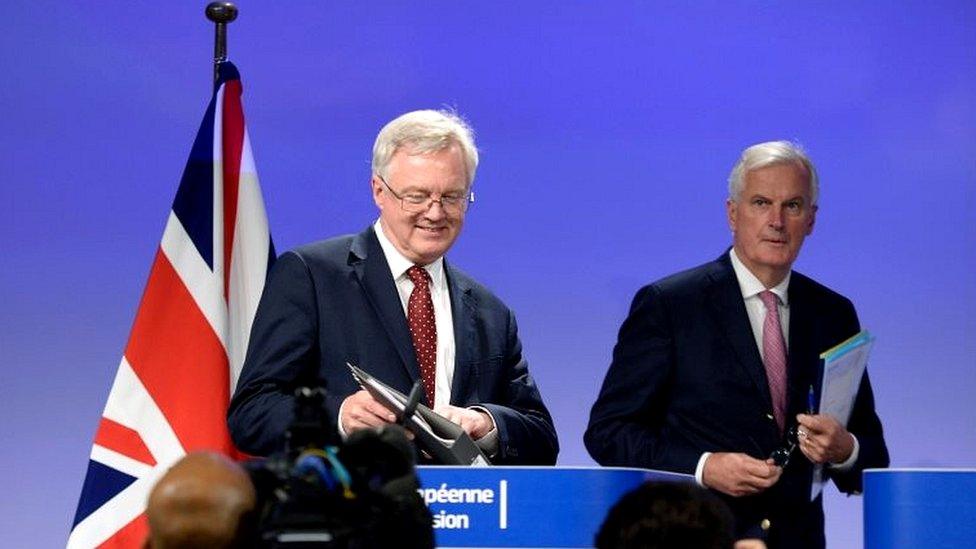
David Davis and Michel Barnier stood at matching podiums in Brussels, side by side but not entirely in step.
Mr Davis talked breezily about work done constructively and "at pace" and even injected a slightly bantering note into proceedings, quoting back to Mr Barnier his own earlier warning line that "the clock is ticking".
Mr Barnier's take appeared to be slightly less positive and was much more focused on the need for further clarification from the UK side on a whole range of issues - we counted him using the word clarification or variations on it at least eight times in a relatively short news conference.
There are plenty of briefings around on points of detail - would the UK for example have the right to conduct blanket criminal record checks on EU citizens applying for residence in post-Brexit UK.
But the big stumbling blocks are obvious and have been obvious for a while.
One is the "divorce bill" - when will a figure emerge into the public domain and what might the UK be prepared to pay.
The other is the future role of the European Court of Justice in overseeing the rights of EU citizens who remain in the UK - the EU sees that as a basic right but from the British perspective it's being seen as "a very big ask".
The Brexit divorce bill remains an issue
David Davis said he was 'encouraged by progress' in Brexit talks
Britain has agreed in principle to meet its financial obligations as it leaves the EU, to cover things like the cost of relocating London-based EU agencies and the pensions of EU officials.
But a senior EU source said the UK negotiating team had not said what they might be prepared to pay - and there had been no "serious discussions" about what the bill might include.
David Davis said: "We both recognise the importance of sorting out the obligations we have to one another, both legally and in a spirit of mutual cooperation."
But Michel Barnier has called for "clarification" on where the UK stands.
UK Foreign Secretary Boris Johnson has said the EU can "go whistle" if it demands an "extortionate" payment but other ministers have struck a more conciliatory tone. Sources have suggested to the BBC the bill could be between 30 and 50 billion euros.
Downing Street said the UK was "looking at the legal commitments" it faces, adding: "There are points of difference and that's one of them."
But there were no plans to produce a position paper on the divorce bill, the No 10 spokesman said.
More detail needed on Northern Ireland
David Davis rejected the suggestion that there was a lack of clarity from his team on Northern Ireland, saying the two sides had discussed ways of "achieving a flexible and imaginative solution to address the unique circumstances around the border" and preserve the common travel area.
A senior EU source said they were still waiting for concrete proposals from the UK side on the kind of border that is achievable.
Read More: 'Work needed' on Brexit impact in Ireland
The role of the European Court of Justice
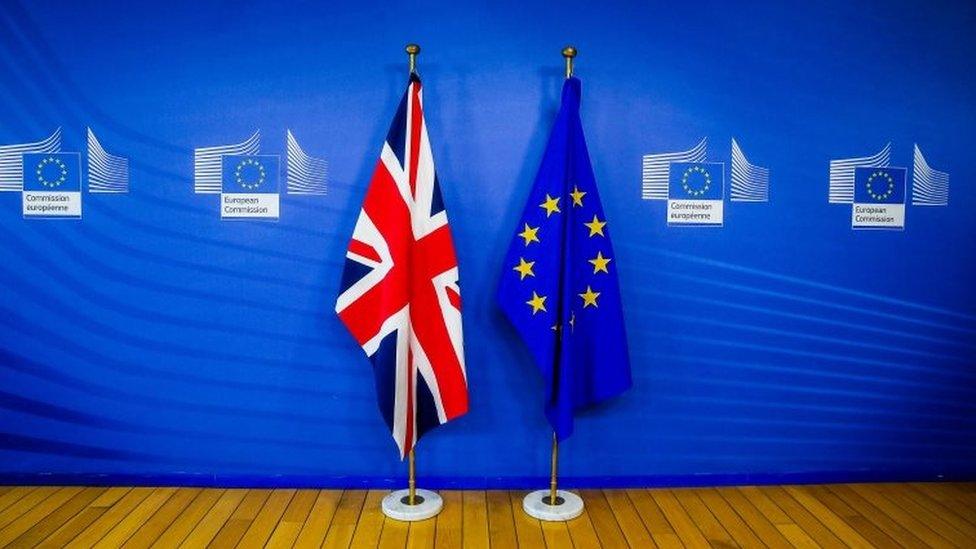
This is the biggest current sticking point, according to British officials.
The ECJ settles disputes between member states about the free movement of workers and other cross-border issues.
UK Prime Minister Theresa May has said the UK will be leaving its jurisdiction.
The UK has floated the idea of a new international body, made up of British and EU judges, or, according to UK officials, "some kind of ombudsman", to settle disputes, but the EU is rejecting this out of hand.
There can't be any agreement on citizens' rights until this one is settled, EU sources say.
Read more: Reality check: What is the European Court of Justice?
Other issues
The UK wants to carry out criminal record checks on all EU citizens who want to live in the UK. The EU says they should only be carried out where there is a suspicion of wrongdoing.
This will be looked at in more detail during the August talks.
On a trade deal, David Davis said the UK could not accept a "punishment" deal, but added: "Nobody expects a punishment deal. Michel and I are going for a good deal."
Gibraltar did not come up as an issue in the current round of talks, sources say.
What Labour says
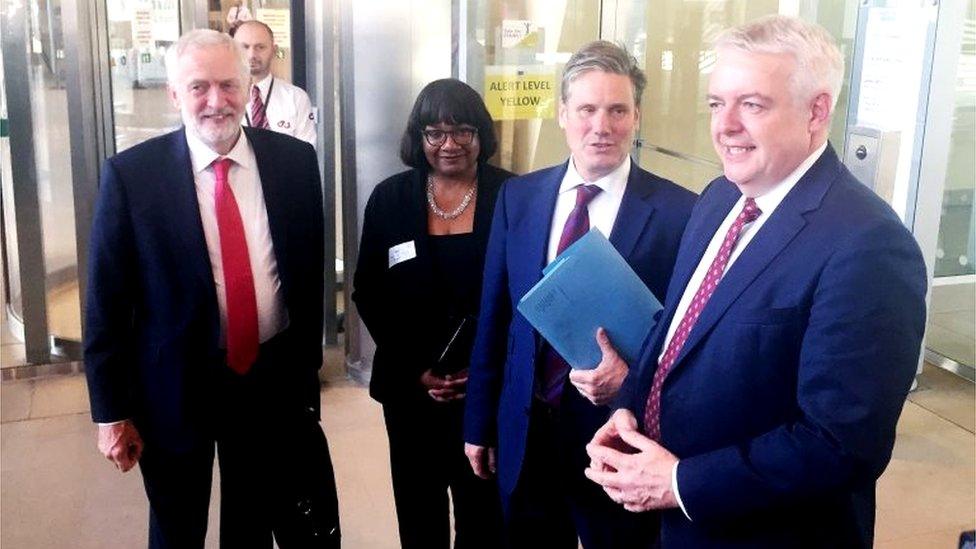
Labour's shadow Brexit secretary Sir Keir Starmer said the "lack of progress" on issues such as the rights of EU citizens in the UK and UK citizens in Europe was "deeply concerning" and would cause "anxiety for millions of families".
He questioned whether phase two of the talks could get under way in October as planned, something that would "trigger deep concern for businesses and communities across the UK".
"The reality is that we have a government that is unprepared, divided and incapable of securing a good deal for Britain. We urgently need a fresh approach," he added.
What happens next
The EU has said talks won't move on to the subject of future trading arrangements until it judges there's been adequate progress on the separation issues.
The two sides are meeting for four days each month, with this week's talks aimed at scoping out points of difference and common ground in those areas that have been identified as requiring urgent attention.
Mr Barnier has said the EU side are hoping to agree the basic terms of a deal on EU citizens and the exit bill in October - which he says would open the way for talks on the UK's future trade relations with the EU to begin in December.
Meanwhile, the UK government has announced that MPs are set to debate the repeal bill - a key piece of Brexit legislation that will transform EU laws into British laws - for two days from 7 September.
- Published20 July 2017
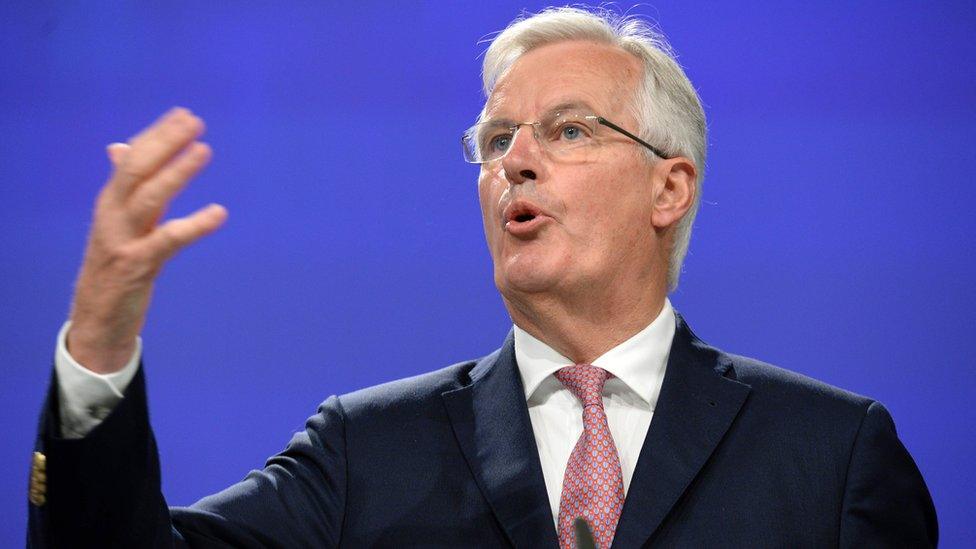
- Published30 December 2020

- Published19 July 2017
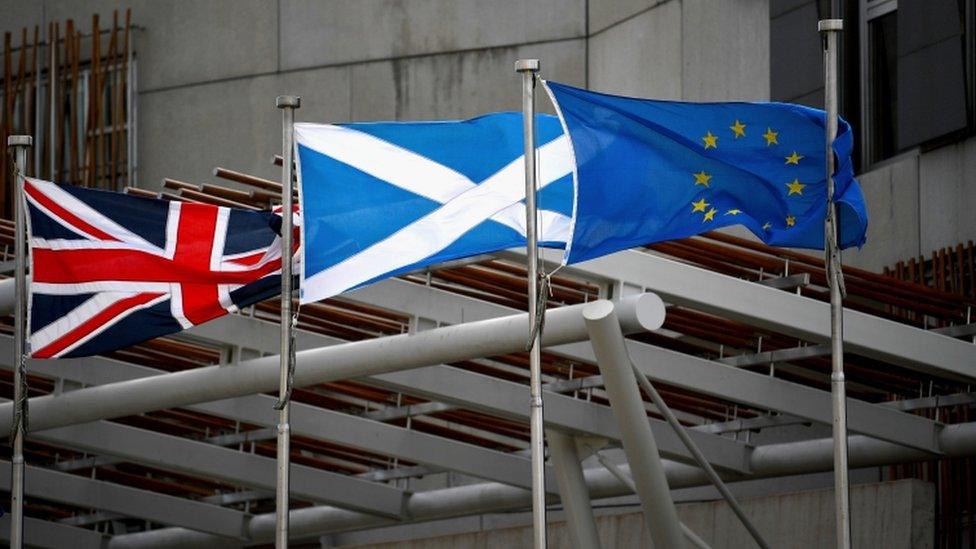
- Published18 July 2017
